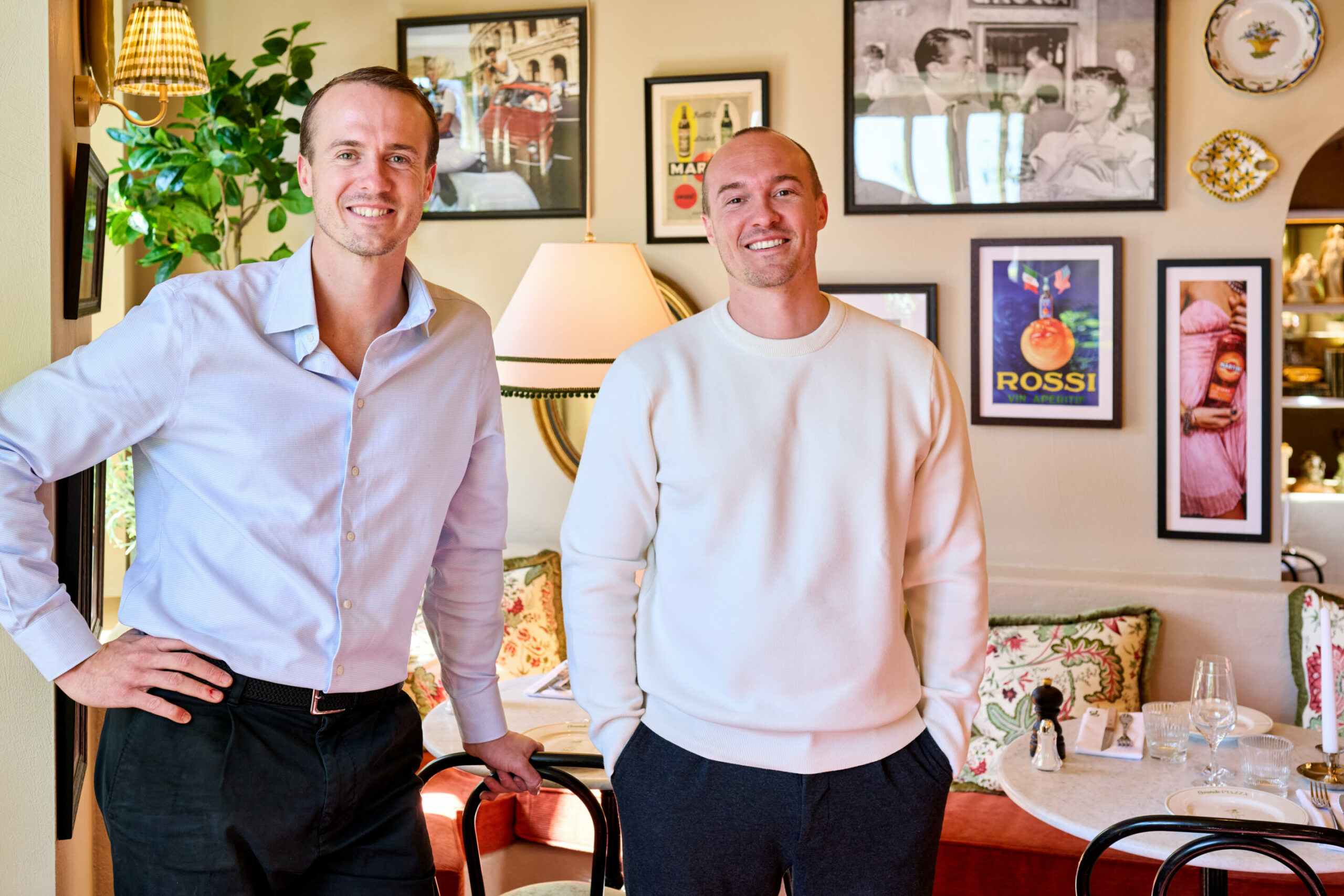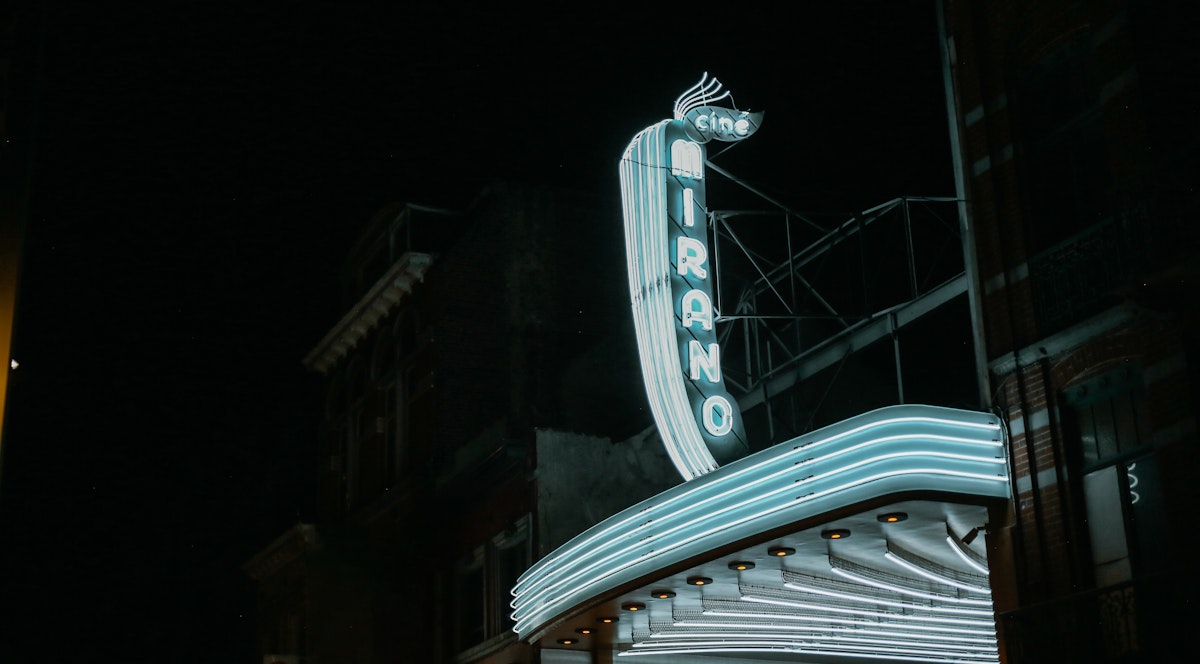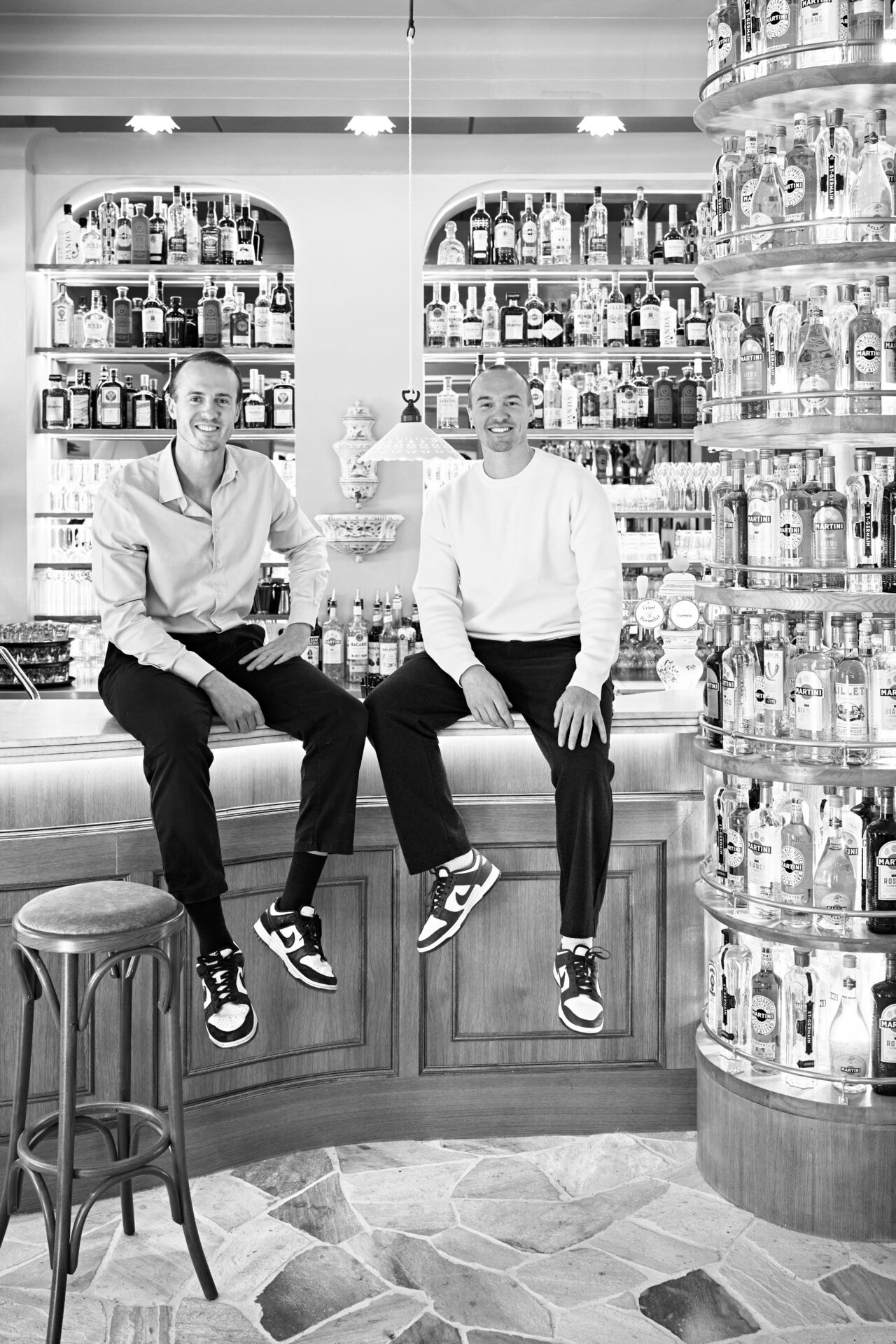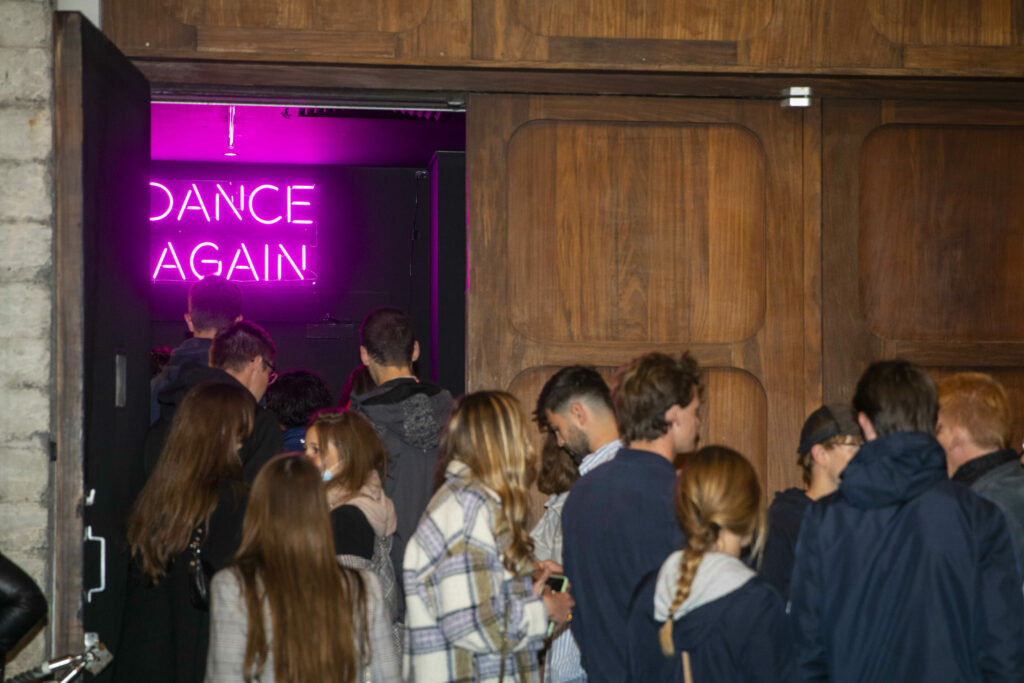The party never ends in Brussels, but tough regulations might kill off its famous nightlife scene, according to the one of biggest players in the sector.
ART Blanc leads one of Brussels' vibrant nightlife and hospitality empires. Jérôme Blanchard owns the group with his brother, a family-owned venture encompassing 12 establishments, including nightclubs, restaurants, event venues, and bars, based in Brussels and extending into Waterloo.
From the outside, venues such as Mirano, Spirito, Le Couloir, and La Maison Basse radiate glamour and a festive vibe. Yet, beyond the curtains, Blanchard faces an increasingly restrictive web of regulations, political inertia, and an uncertain future for the nightlife sector.
"We're businessmen," he tells The Brussels Times. "You don't pour €1.5 million into a venue if you can't be sure it'll still be open in six months," he adds.

The Blanchard brothers, owners of ART Blanc. Credit: ART Blanc
Blanchard reassured that Spirito – Brussels' Anglican church turned nightclub – is still operating. However, it will shut its doors in 2026 after 16 years of heavy regulatory pressure. "It's tiring, yes," he concedes, "but the lack of guarantees pushed us to decide. You never know when the IBGE [Brussels' environmental enforcement agency] will decide you're too loud, crowded or late."
For the Blanchards, the issue isn't just about sound limits. They are under the mercy of the IBGE. It's a broader critique of what he sees as a creeping rigidity in Brussels' urban governance. "They stack rule upon rule," he says. "At some point, we forget the basic idea of living together. Now we're punished for the very act of being open."
And yet, paradoxically, his business is booming, and his nightclubs and venues are full. Mirano has been around for 40 years and still draws 3,000 to 3,500 people each weekend.
But Brussels' nightlife has changed. A rising tide of alternative parties, DIY raves, and collective-run pop-ups is reshaping the city's social geography. Are these disrupting the ART Blanc model?
"There's room for everyone," Blanchard shrugs. "Some places are cheap and niche. Others are upscale and commercial. That's always been the case." He views competition not as a threat, but as proof of vitality. "People want to go out. The real risk isn't from other parties. Its policy is strangling the entire sector."
The boom in 'bar-disco hybrids' – corner cafés morphing into miniature nightclubs – is another sign of a cultural shift. "Big clubs have lost ground, yes. But the bars? They're overflowing. Everyone's playing music now. That tells you the demand hasn't changed – just the format."
Politics of the ashtray
On security, and Blanchard's answer is sober: "The problem is European. We train our staff constantly. We invest in technology. But on the street, outside our walls? That's harder."
Clientele, too, evolves – but not always in the way you'd think. "Fashion changes, music changes. Ten years ago, you danced to pop. Now it's electronic. That's not a change in people – it's a change in taste."
When asked how Belgian politics have shaped his business, Blanchard became slightly irritated. "Inaction. That's the word. They see problems, but they react too slowly – or not at all."

Mirano club. Credit: Visit Brussels
He's particularly frustrated with what he sees as "performative policy-making." Banning smoking on terraces – why now? After Covid, inflation, wage hikes, material shortages. "We've done everything asked. But where's the data that proves these sacrifices work?"
He's not anti-regulation, he insists. Just sceptical of empty symbolism. "Give me a report that shows we're healthier, safer, better. Then I'll get on board."
Beyond Brussels with caution
ART Blanc is now testing international waters. A hotel in Mauritius is their first outpost beyond Europe – and not the last. "It was an opportunity," Blanchard admits. "But now we have a strategy. Hotel development, internationally, is on the horizon."
And Brussels? "It lacks a strong, high-end hotel offering," he says. "And on the tourist front, we're not Paris. We don't have that draw. But in terms of nightlife, cuisine, atmosphere? We've got nothing to envy."
Still, he admits, the city's global potential remains underutilised. "Until we think big, and until the rules make sense, we'll always be boxing with one hand tied."

The Blanchard brothers. Credit: ART Blanc
ART Blanc started as a tongue-in-cheek nod to its founder: Blanchard in verlan (French slang that inverts syllables) but it became a challenge to the status quo.
In a tangled Brussels, Blanchard's group is an example that success is possible. Brussels still has the talent, the energy, the edge. But if it keeps tightening the screws, it risks driving out exactly what makes it worth staying for. The city can't regulate its way into relevance: it needs to loosen its grip before there's nothing left to hold on to.

